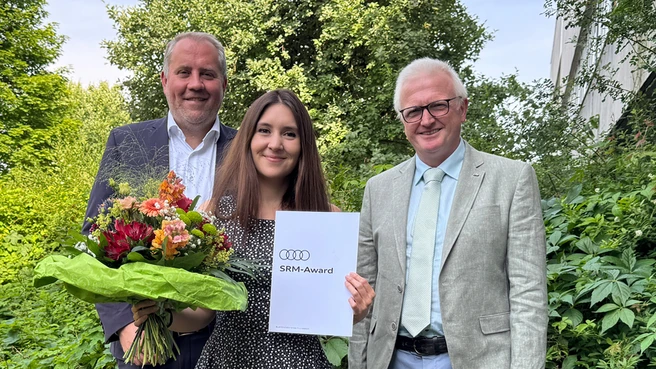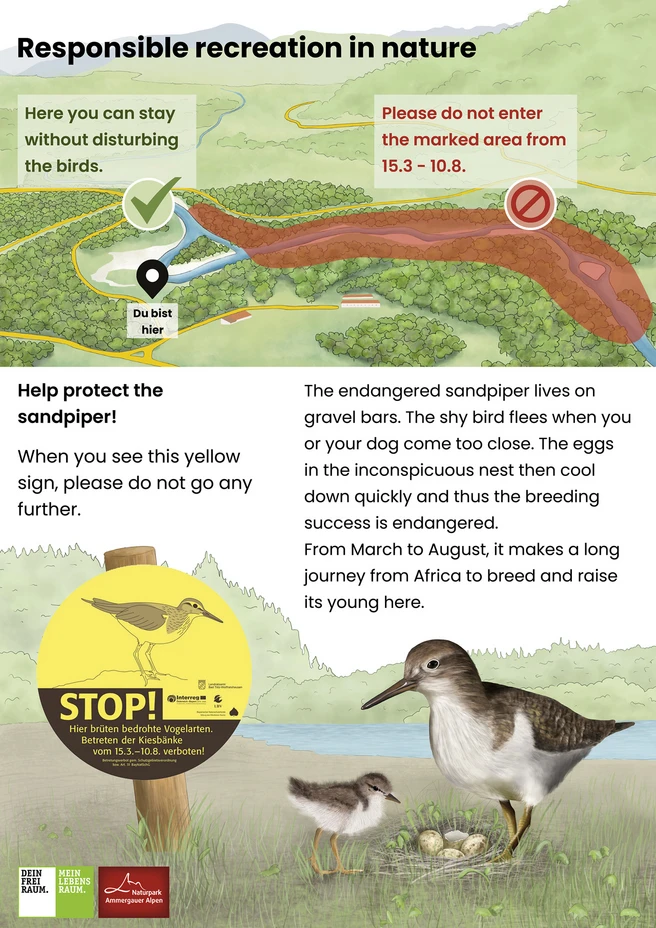When hiking through a nature park, you will almost always come across informational signs. But here is the challenge: most visitors only glance at them for three to ten seconds – even though they often contain critical messages about protecting wildlife and habitats. This is the case even when it comes to important messages about the protection of wild animals and their habitats.
Some animal species are very susceptible to disturbance by humans or dogs. They come under pressure from intensive outdoor activities, which particularly affects breeding birds. However, outdoor visitors are not always aware of these conflicts.
So how can we design signs that truly resonate?
That is the question Valentina Arros tackled in her master’s thesis as part of the Sustainable Resource Management degree program at TUM School of Life Sciences. She identified the key information needs of recreational visitors and developed various sign prototypes based on these insights.
Der title of her thesis, published in English: „Optimization of interpretive signage for the protection of an endangered species in the natural park Ammergauer Alpen in Germany.“ Arros wrote her Master's thesis at the Chair of Forest and Environmental Policy. Her supervisor was Dr. Klaus Pukall, who is also the coordinator of the Nature Park Ammergau Alps (Website in German).
Her goal: to create signs that are both informative and visually engaging – and that use positive messaging to inspire people to actively contribute to environmental protection. This is something she continues to work on as a freelancer after graduating from the degree program Sustainable Resource Management.
Valentina Arros explains: "In my thesis, I explored how effective signage design in protected areas can promote awareness and respectful behavior toward vulnerable species. I developed four sign prototypes and evaluated their attraction, comprehension, and effectiveness in communicating conservation messages, ultimately refining them into a final design. This award is a meaningful recognition of the value of bridging conservation science with real-world communication strategies."
About the SRM Award: This special award recognizes outstanding achievements in the Sustainable Resource Management degree program once a year. In 2025, Valentina Arros received the award – at the Forestry Summer Festival in Freising-Weihenstephan, organised by the student representatives of Forest Science and Resource Management at TUM.
This article is based on a message from the Audi Environmental Foundation and has been expanded and adapted for the TUM School of Life Sciences.

